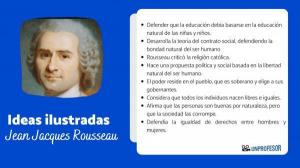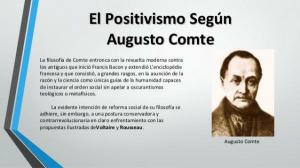SOCRATES Philosophy - Summary with VIDEOS [to study!]

In today's class we offer you a summary of the philosophy of the first great philosopher of classical culture and the father of Western philosophy, Socrates (470-399 BC. C.). A philosopher who broke with the prevailing philosophical line in Athens, the sophism of Protagoras or Gorgias, which, established that knowledge was passively transmitted from sages to disciples.
Thus, the figure of Socrates broke in to question the imposed philosophy and influence great thinkers such as Plato and Aristotle, marking the beginning of a new form of reflection and a philosophy that was characterized by the development of ethics and the Socratic method. If you want to know more about this great philosopher, keep reading because in this article by a PROFESSOR we offer you a summary of the philosophy of Socrates.
Socrates was born into a humble family (his father was a sculptor and his mother was a midwife) from Athens in 470 BC. C., which is why he received a basic education and, before standing out as a philosopher, worked as a bricklayer and fought in the
Battle of Potidea (432 BC) C.). However, he also stood out as a disciple of the philosopher Arquelao (S.V a. C.) and, little by little, he excelled as a speaker, creating around him a small group of disciples like Plato.In parallel, he also became an uncomfortable character for the tyranny of Critias and in the year 399 a. C. he was sentenced to death (ingesting hemlock) for corrupting the youth, for impiety and trying to introduce other gods. Undoubtedly, his trial was a political trial and, despite the fact that everything was prepared for his escape, he refused and displayed one of his maxims: Laws must be respected even if they are not fair.
In this way, Socrates died at the age of 71, leaving for posterity an immense philosophical legacy: the Socratic School or Platonic Academy.
Although our protagonist did not write any work, the thought of him has come to us through several of his disciples and followers, such as Plato (Dialogues, The Republic) or Xenophon (Apolisia, Symposium or Anabasis). Thus, thanks to them today we can draw a fairly reliable sketch of their philosophy.
1. The Socratic method
According to Socrates, his method is the one that helps us to obtain and remember the truth. And, for this, he uses the Greek term maieutike = art of helping to give birth, because for him, pregnancy and childbirth are an analogy of the process that we must follow to obtain knowledge.
This, therefore, is a painful process because it is based on performing a whole series of unfinished questions and uncomfortable that show us that we do not have absolute knowledge about what we think we know. However, this process that a priori turns out to be uncomfortable for one of the interlocutors, allows us to reach the knowledge by ourselves, helps us reason and open our minds
This method it is divided into two phases:
- The irony: The teacher raises a topic to be debated by the student, making him believe that he knows it (exalting it) and the teacher does not. Thus, the teacher begins by asking ironically (as if he did not know anything) and refuting all the answers with more questions to take the student to a point where he does not know how to answer and realizes that he doesn't know everything.
- The maieutics: It helps us to get our knowledge out of our psyche and to discover that our idea about things is wrong.
Besides, the Socratic maieutics it is characterized by:
- Be a debate equal to equal and in which both parties have an active role. Here the student will never have a passive role, but participatory.
- It is a dialogue in the teacher that leads the student to gain knowledge through questions.
- The teacher does not show his own opinion and only limits himself to asking so that the student is able to get to the truth.
- Its objectives are: question preconceptions, make us aware of our own ignorance and free ourselves from closed beliefs or thoughts.
2. Epistemological optimism or moral intellectualism
The Moorish intellectualisml part of the Socratic idea that tells us that knowledge is the greatest of virtues and ignorance the greatest of vices and, therefore, for our protagonist evil is the absence of knowledge of good and the fruit of ignorance.
Thus, the person who acts badly is not out of evil, but out of ignorance (nobody does evil knowingly). Therefore, if you teach the individual who does evil what good is, he will correct him and do good, since he is a victim of ignorance. In this sense, moral intellectualism is characterized by trying to make a moral and ethical reform from reasoning: rationalizes the good (knowledge) and the bad (ignorance).
Finally, it should be noted that this moral intellectualism has traditionally been defined as Socratic fallacy, since, it has been considered that it fits within an innocent and very positive vision of the human being and, in this sense, we must bear in mind that we can know what is good and do evil indistinctly.
3. The universal
The universal is described by Socrates himself as a abstract concept and defines it as the idea that two different objects can have the same name because they are the same thing, because it fulfills a certain function and because they have similar characteristics.
But, it must be taken into account that these characteristics that determine a thing or object are not material, but immaterial and that they do not change with the passage of time. That is, I may have a wooden pencil that can deteriorate over time, but its concept remains stable. Importing thus, the concept that I have about a thing and not the object itself.

Socrates' philosophy is not only limited to his Socratic method, to moral intellectualism to the universal, but there were other points in which he highlighted his thinking. Within the characteristics of Socratic philosophy, we highlight the following.
His concept of philosophy
For Socrates the philosophy It should be predominantly practical, that is, it should be aimed at discussing, debate and reflect on major issues such as justice, good, politics, religion, virtue or democracy, as well as, teach us to live, to obtain the intrinsic knowledge in us and to differentiate between good and evil.
Thus, for our protagonist, philosophy was built through dialogue, therefore, he did not write anything; he considered that writing it wasted time to make the true philosophy, that it blurred its essence and that it ended up being obsolete.
Reflection from logos / reason
Socrates was one of the first sages in reflect on the great ethical dilemmas (the good, politics, religion, justice, virtue ...) from the logos / reason and not from the mythos / mythology.
That is to say, that for him the explanation of the great dilemmas must be found in the reason and in objectivity, therefore, it rationalizes morality and religion. In addition, reason stands as the most important thing: it understands the soul as the most important part of the individual, with reason being the conscious self.
Wisdom and virtue
Within Socratic philosophy two concepts stand out that go hand in hand, the wisdom (where is the happiness of man / balance) and The virtueWisdom is that which we achieve by questioning everything that has been established, thinking for ourselves and being aware of our limits (humility).
Therefore, wisdom is what leads us to happiness, what helps us to know ourselves (inductivism), the one that gives us freedom, the one that helps us control our instincts, the one that gives us an internal balance and, above all, the one that leads us towards The virtue and it takes us away from the worst of the vices would be, the ignorance.
Teaching and acquiring knowledge
Another of the key points of Socrates' philosophy is his teaching concept, which is based on andl constructivism. That in which the person generates and builds their own knowledge without being influenced, since, knowledge is something innate to usWe just need someone to help us remember it.
Furthermore, Socrates revolutionized teaching: He did not charge for his classes, they were oriented to few individuals, and his method was fully practical. That is, for him, the student had to be an active subject, had to be a participant in his own learning and not limit himself to obtaining knowledge in a theoretical way, as promulgated by the sophists.
Personal religion
Also, the idea that our protagonist has about the religion, which directly collided with the religious concept of Classical Greece. For him, the religious experience had to be something intimate, personal and in which a public building was not needed to worship or speak with a god, but it would be worth establishing our sanctuary of consciousness in our inside.
Therefore, Socrates does not believe in Greek religion as the dogma established: he tells us about the daimon or your god / conscience, our inner self, your inner voice that tells you what to do and the one that mediates between the gods and man.
Politics as an activity of the wise
Socrates affirms that power should be held by specialists or political scientists and, therefore, not everyone would be qualified or should govern. Thus, he criticizes that one of the vices of democracy is allowing the ignorant to come to power and, furthermore, Socrates is not going to be a defender of this form of government.




